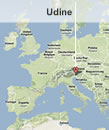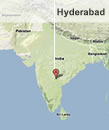EU-India summit – A partnership for prosperity
The European Union and India will hold their 12th annual summit in New Delhi on 10th February 2012
The European Union and India will hold their 12th annual summit in New Delhi on 10th February 2012. The EU will be represented by European Council President Herman Van Rompuy and by European Commission President José Manuel Barroso. The EU Trade commissioner, Karel De Gucht will also attend the summit. The Republic of India will be represented by Prime Minister Manmohan Singh, Foreign Minister S.M. Krishna, Trade Minister A. Sharma and National Security Adviser, S.S. Menon.
On the eve of the Summit President Van Rompuy stated: “The 12th EU-India summit will confirm that EU and India are strengthening and rebalancing their partnership in its political dimension, thus bringing our relationship to new heights. It will demonstrate that increased cooperation between India and the EU can make a difference for the security and the prosperity of our continents.”
President Barroso said: “The EU and India are strategic and natural partners that share the responsibility to address some of the most pressing challenges the world is currently faced with. We have to capitalise on our long-standing relationship to benefit from the many opportunities offered in key areas, such as trade, energy, and research. An increased EU-India cooperation will not only foster growth in the short term in both our continents, but will also create conditions towards a sustainable and more inclusive development in the long run.”
The summit agenda will cover bilateral, regional and global issues.
Background
India and the EU have been enjoying a privileged relationship since 2004 when they concluded a strategic partnership. Since then, the partnership has demonstrated its ability to evolve and to better adapt to global challenges and shared concerns and interests.
The EU and India annual bilateral summits have been held since 2000. They provide an appropriate platform for political dialogue at the highest level.
The last summit was held in Brussels in December 2010. It sought to strengthen the political dimension of the partnership, in particular its security dimension, with the adoption of a joint declaration on international terrorism that kick-started cooperation in areas such as counter-terrorism, counter-piracy and cyber-security. Expert meetings since the Summit have resulted in a roadmap for reinforced cooperation in 2012.
EU-India trade in goods has grown impressively over the years, from € 4.4 billion in 1980 to € 26 billion in 2000, and € 67.9 billion in 2010, recovering from 2009 downturn; trade in goods and services amounts approximately €86 billion. EU goods exports to India amounted €34,7 billion in 2010 and goods imports from India €33,2 billion. EU27 trade with India grew by 20% in January-October 2011 compared with January-October 2010 (EU exports to India grew from €28 billion to €33,4 billion and exports from India to the EU from €27.8 billion to €33.3 billion).
Trade with the EU represents 19% of India’s exports and 14% of imports, the EU being India’s largest trading partner. The EU is also India’s largest source of foreign direct investment. However, India accounts for just 2.6% (2010) of total EU trade and attracts only 1.1% (2009) of the EU’s world-wide investments, which demonstrates the potential for strengthening many of EU-India trade and investment areas.
A joint work programme on energy, clean development and climate change was adopted in 2008. At the last Summit, leaders reaffirmed their commitment to intensify their cooperation in these fields with a view to enhancing energy security, energy efficiency and promoting the development of renewable energy. This year, a report on the implementation of the joint work programme will be presented to the leaders, who will endorse a joint declaration on energy to further strengthen the dialogue and the activities that take place in the framework of the EU-India Energy Panel. These activities will focus on clean coal, energy efficiency of products and buildings, grids (including integration of renewables), cost-effective ways to promote renewable energies and safety (off-shore and nuclear).
The EU and India have been enjoying strong research and innovation cooperation since the signature of the scientific and technological cooperation agreement in 2001 and its renewal in 2009. In 2010, India, the European Commission and the EU member states launched a pilot initiative through the strategic forum for international S&T cooperation (SFIC) towards greater convergence of their priorities and strategies in the field of water and bio-resources.
The joint declaration on “Indo-European research and innovation partnership” to be adopted at the summit will set a strategic agenda to identify common challenges, shared objectives, priority areas and instruments of cooperation between India and the EU for the near future. Beyond water and bio-resources, energy, health and information and communication technologies may be identified as priority areas.
Cooperation with India in the context of the EU’s seventh research framework programme (FP7) is increasing, not only under EU financed programmes but also through EU-India co-funded calls (such as on water technologies). Indian researchers and organisations are participating in 135 FP7 projects compared to 97 projects under FP6. The areas where the cooperation is particularly strong are health, Information and Communication Technologies, environment, food, agriculture and biotechnology, and social sciences and the humanities.
The Memorandum of Understanding (MoU) on statistical cooperation will identify common needs and interests to better contribute to policy formulation on both sides.
Eurostat has previously signed such MoU with other non-EU countries such as Mexico, Russia and the Republic of Korea.
Source: investineu.com








